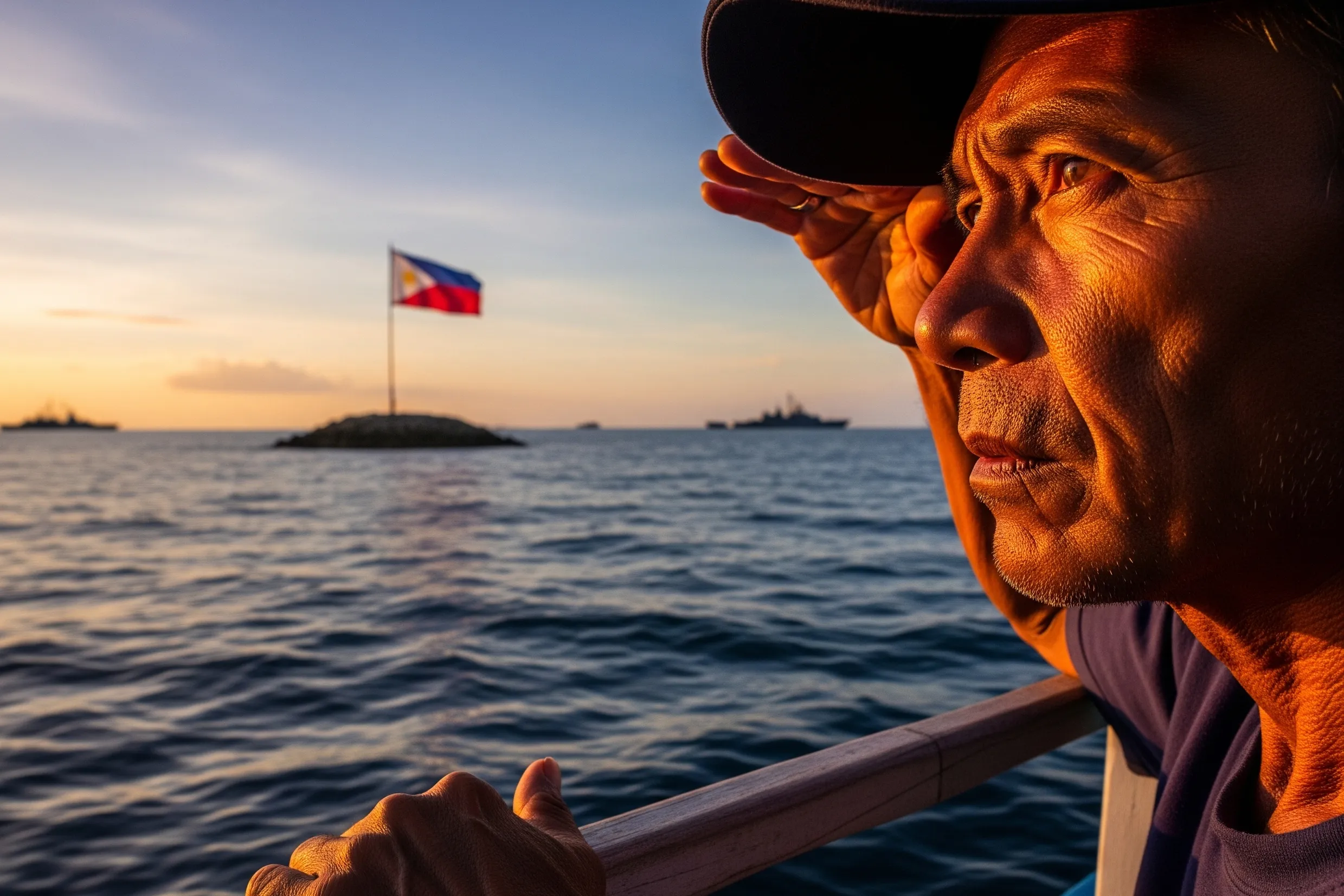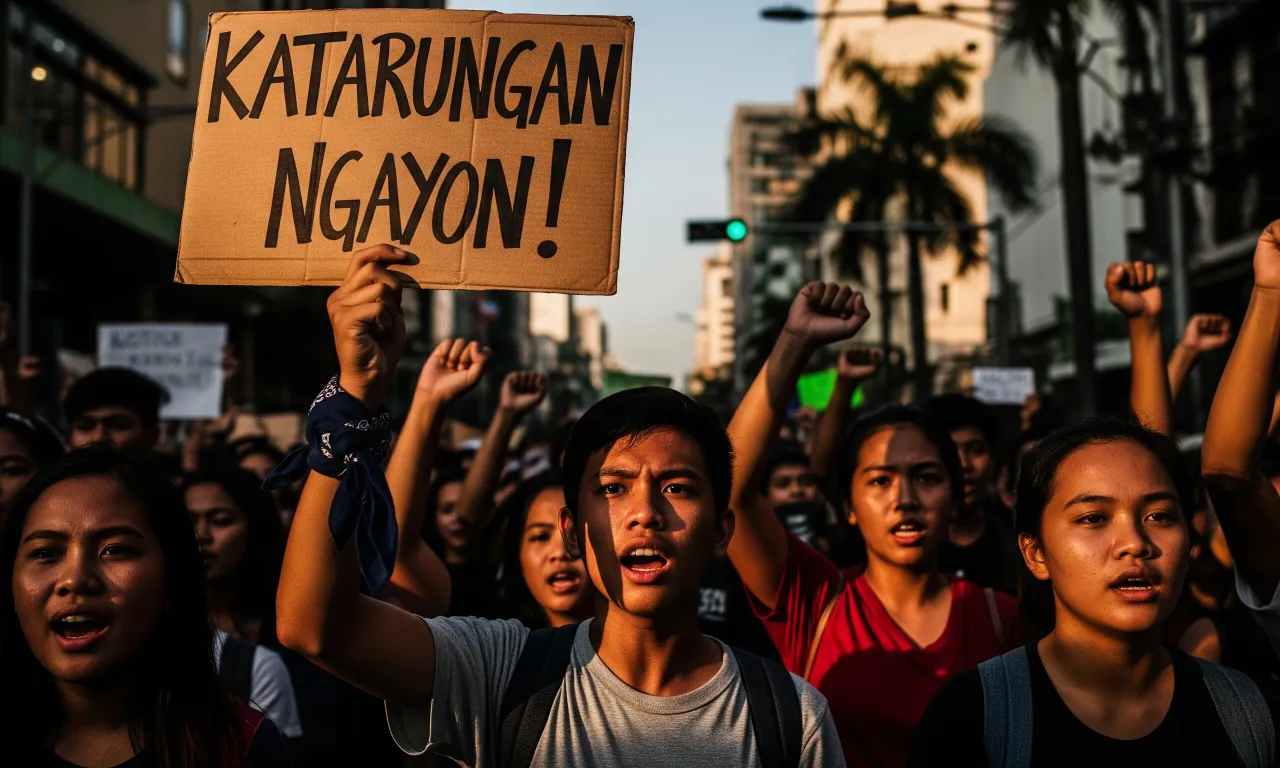🌊 The West Philippine Sea: Why It’s More Than Just Water
For many, the West Philippine Sea might look like nothing more than a patch of blue on the map — a remote expanse of waves and sky far from the noise of Manila or the hustle of our cities.
- 🌊 The West Philippine Sea: Why It’s More Than Just Water
- 📜 A Quick History: How Did We Get Here?
- ⚠️ The Reality Today: Why the Tension is Heating Up
- 💔 What’s at Stake if We Lose the West Philippine Sea
- 🛶 The Everyday Filipino’s Role: We’re Not Helpless
- 📢 Ways to Take Action Without Wearing a Uniform
- 🇵🇭 Real Stories: Filipinos Already Standing Up
- 🎯 How to Spot & Stop Disinformation About the WPS
- ❓ FAQs About the West Philippine Sea for Filipinos
- 🔥 This is Our Fight Too
But for the fisherman in Zambales who wakes before dawn to cast his net… for the oil engineer who dreams of tapping our own natural reserves… and for every Filipino who sings “Lupang Hinirang” with a hand on their heart — this is not just water.
It’s food on our tables.
It’s jobs for our people.
It’s security for our children’s future.
Every grain of sand in those contested islands, every fish swimming in those waters, belongs to us. And yet, every day, our sovereignty is challenged.
📜 A Quick History: How Did We Get Here?
To understand why emotions run high whenever we hear “West Philippine Sea,” we need to rewind a bit.
-
1970s-1990s: The South China Sea dispute simmers quietly, with multiple countries — including the Philippines, China, Vietnam, and Malaysia — staking claims on certain islands and reefs.
-
1995: China builds structures on Mischief Reef, alarming the Philippines.
-
2012: The Scarborough Shoal standoff occurs, and China effectively takes control after a tense maritime confrontation.
-
2016: The Permanent Court of Arbitration in The Hague rules in favor of the Philippines, stating China’s claims have no legal basis. China rejects the ruling.
Since then, Chinese vessels — sometimes disguised as fishing boats — have swarmed our waters, often harassing Filipino fishermen. Meanwhile, our navy and coast guard stand watch, but resources are limited.
⚠️ The Reality Today: Why the Tension is Heating Up
In 2025, the situation is more volatile than ever:
-
Chinese coast guard ships have been spotted in record numbers within our Exclusive Economic Zone (EEZ). 🚢
-
Filipino fishermen report being chased away or water-cannoned from traditional fishing grounds. 🎣
-
Environmental damage is mounting — coral reefs destroyed, marine life disrupted. 🌊
This is not just a political issue — it’s a personal one. Every Filipino, from Luzon to Mindanao, is impacted. Whether it’s the fish in our markets, the oil under our seas, or the very pride we feel as a nation, we all have skin in this game.
💔 What’s at Stake if We Lose the West Philippine Sea
If we don’t defend what’s ours, the loss isn’t just geographical. Here’s what we risk:
| What’s at Stake | Why It Matters |
|---|---|
| 🐟 Food Security | The WPS is a rich fishing ground that supports millions of Filipinos. Losing access means higher prices and less supply. |
| ⛽ Energy Resources | Beneath those waters lie untapped oil and gas reserves that could reduce our dependence on imports. |
| 🏝 Sovereignty | Losing territory weakens our international standing and opens the door for further encroachments. |
| 🌏 Environmental Health | Coral reef destruction threatens biodiversity and our marine ecosystem. |
| 💼 Economic Opportunities | Tourism, research, and local industries all suffer if access is lost. |
🛶 The Everyday Filipino’s Role: We’re Not Helpless
You don’t have to be in the navy to defend the West Philippine Sea.
You, yes YOU, can make a difference — in your own home, workplace, and community.
📢 Ways to Take Action Without Wearing a Uniform
Here are practical steps every Filipino can take:
-
📚 Educate yourself and others — Learn the facts. Read from trusted sources like the Department of Foreign Affairs and reputable news outlets.
-
📱 Use social media responsibly — Share verified updates, call out fake news, and spread awareness.
-
🐟 Support local fishermen — Buy directly from them when possible. This strengthens coastal communities most affected by the dispute.
-
📝 Sign petitions and join advocacy groups — Many NGOs push for stronger maritime policies; your voice matters.
-
💬 Engage in conversations — Talk to family and friends. Awareness starts small but grows big.
-
🇵🇭 Promote patriotism — Fly the flag, join Independence Day activities, and let your pride show.
🇵🇭 Real Stories: Filipinos Already Standing Up
Meet Mang Jun, a fisherman from Masinloc.
He still goes to sea despite the danger of being confronted by foreign vessels. “Kung hindi kami lalaban, sino pa?” he says with quiet resolve.
Or Aira, a 23-year-old student who started a TikTok channel explaining the WPS dispute in short, snappy videos. Her clips have reached millions, sparking conversations among young Filipinos who might otherwise scroll past the news.
These are proof: bravery isn’t just in uniform — it’s in action.
🎯 How to Spot & Stop Disinformation About the WPS
Disinformation is a weapon — and it’s aimed at our unity.
Myth: “The WPS doesn’t belong to the Philippines.”
Fact: The 2016 Hague ruling confirms our EEZ rights under international law.
Myth: “Ordinary Filipinos can’t do anything.”
Fact: Every movement starts with informed people who care enough to act.
Myth: “China will always win because they’re bigger.”
Fact: International law and global alliances are powerful tools — if we use them.
❓ FAQs About the West Philippine Sea for Filipinos
Q: Will this dispute lead to war?
A: Unlikely, but tensions can escalate. That’s why diplomacy, alliances, and public awareness are crucial.
Q: Does this issue really affect me if I don’t live near the sea?
A: Yes — from the price of seafood to national security, the effects ripple across the country.
Q: What can I do if I see disinformation online?
A: Report it, correct it respectfully, and share credible sources instead.
🔥 This is Our Fight Too
The West Philippine Sea is not just a piece of water. It is our heritage, our future, and our dignity.
We can’t just sit back and watch it slip away. We can’t afford to be silent.
This is a call — to students, workers, parents, OFWs, entrepreneurs — to stand together.
Not all battles are fought with guns. Some are fought with voices, with choices, with unity.
And this… this is one battle we cannot afford to lose.




